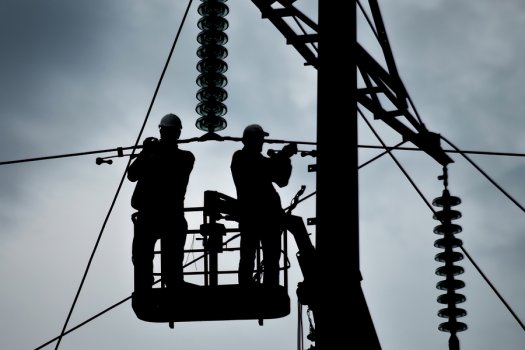After years of lackluster starts in what I think of as the internet of electricity, we might be at an inflection point thanks to the very real perils of climate change. For at least a decade, companies and energy experts have envisioned a future where the electrical grid responds to market and demand signals to ultimately use less energy. That vision has evolved from using less energy to using more renewable energy and better matching the use of energy when it was created by renewable means (often during daylight hours, when solar and wind generation are strong).
But the last two years have led to a shift in how we view our reliance on the grid and how our portfolio of energy generation has exacerbated the problem of climate change. We need more resiliency in the grid. We also need to transition from coal, gas, and natural gas as quickly as possible. In the meantime, we’re beginning to realize that as we shift to a more information-rich grid that will become increasingly more dependent on renewable energy, there’s no way we’re going to actually use less energy. And this has huge implications for the smart home.
These two trends — electrification and resiliency — will drive investment into energy management technologies going forward. Let’s tackle electrification first.
New York City this week became the largest city in the country to ban natural gas hookups in new buildings. This means that gas dryers, ranges, and more are now forbidden in new construction. Other cities have taken similar steps.
Continue reading: https://staceyoniot.com/resiliency-and-electrification-will-drive-smart-energy/
But the last two years have led to a shift in how we view our reliance on the grid and how our portfolio of energy generation has exacerbated the problem of climate change. We need more resiliency in the grid. We also need to transition from coal, gas, and natural gas as quickly as possible. In the meantime, we’re beginning to realize that as we shift to a more information-rich grid that will become increasingly more dependent on renewable energy, there’s no way we’re going to actually use less energy. And this has huge implications for the smart home.
These two trends — electrification and resiliency — will drive investment into energy management technologies going forward. Let’s tackle electrification first.
New York City this week became the largest city in the country to ban natural gas hookups in new buildings. This means that gas dryers, ranges, and more are now forbidden in new construction. Other cities have taken similar steps.
Continue reading: https://staceyoniot.com/resiliency-and-electrification-will-drive-smart-energy/

